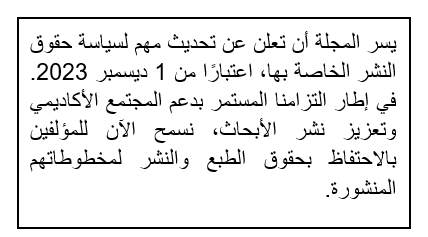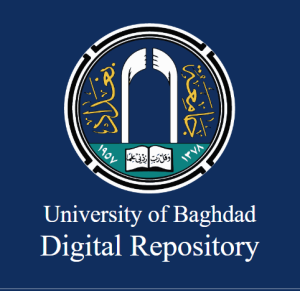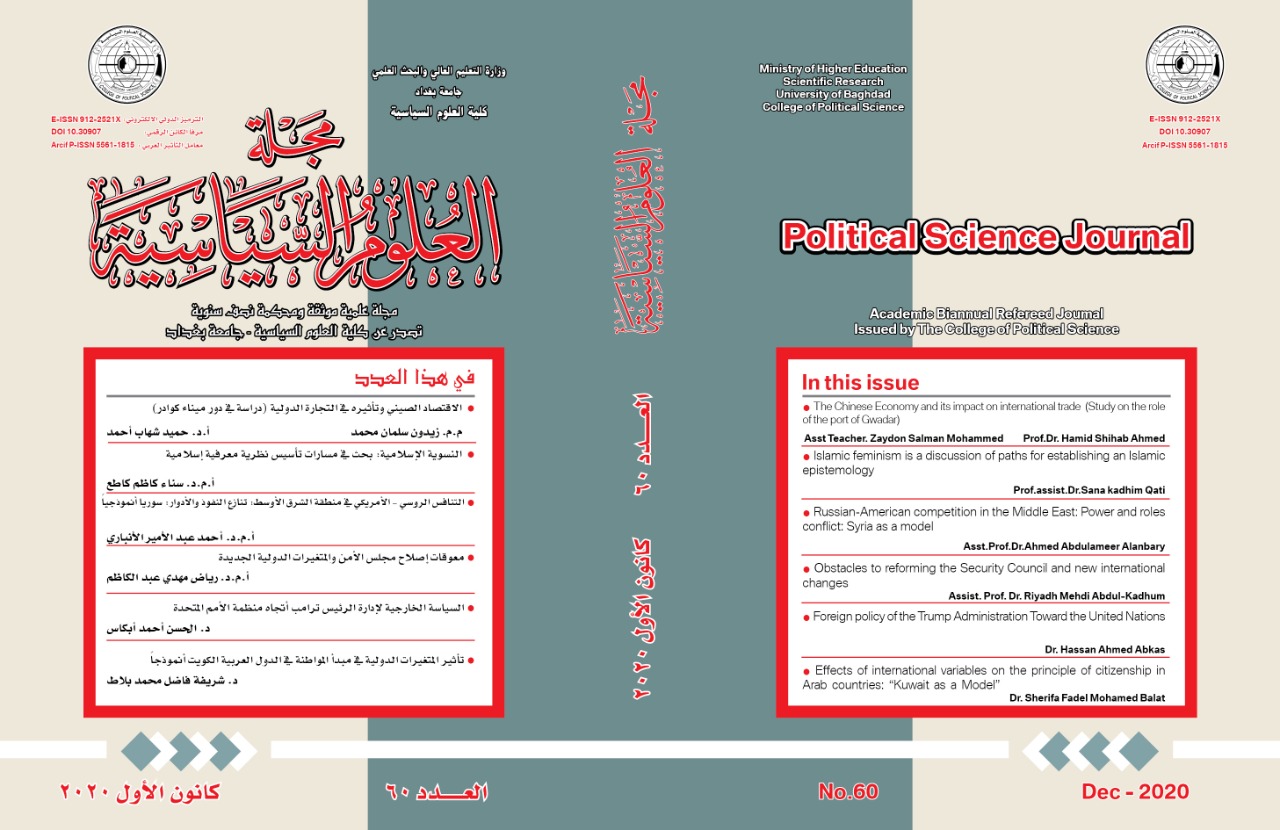محددات البيئة الداخلية ونتائج الانقلابات الدستورية أوغندا وبوركينا فاسو من منظور مقارن
DOI:
https://doi.org/10.30907/jcopolicy.vi68.723الكلمات المفتاحية:
الانقلاب الدستوري، النظم السياسية الإفريقية، التعديلات غير الدستورية، المحسوبية، أوغندا، بوركينا فاسوالملخص
تُعد ظاهرة الانقلابات الدستورية أحد الملفات المطروحة وبقوة على الساحتين الدولية والإفريقية، نظرًا لتداعياتها السياسية والأمنية الخطيرة على السِّلم والأمن في القارة الإفريقية بأكملها. بزغت ظاهرة "الانقلابات الدستورية" باعتبارها نمطًا من أنماط الالتفاف على عمليات التحول الديمقراطي والتداول السلمي للسلطة، وذلك من خلال اقتراح وتمرير تعديلات دستورية هي أقرب إلى انقلابات سياسية على الدساتير. يتم إقرار تلك التعديلات من خلال استفتاءات شكلية، تستهدف الإبقاء على رؤساء الدول في السلطة لدورات رئاسية إضافية، وربما تأبيدهم في السلطة مدى الحياة. فمضمون تلك الإجراءات يصب بشكل مباشر في تكريس سلطة واستبداد النظم الحاكمة.
وتتأثر نتائج محاولات الانقلاب الدستوري بمجموعة المُعطيات والعوامل المُتعلقة بالبيئتين الداخلية والخارجية للنظام السياسي. يُركز هذا المقال على دراسة عدد من محددات البيئة الداخلية، التي تؤثر بشكل مباشر على نتائج محاولات الانقلاب الدستوري بالتطبيق على حالتي أوغندا عام 2005، وبوركينا فاسو عام 2014. تنقسم تلك المحددات إلى محددات داخلية مؤسسية، وأخرى غير مؤسسية. فيما يتعلق بالعوامل الداخلية المؤسسية نتناول كلاً من (تماسك الحزب الحاكم وتمثيله في السلطة التشريعية- مدى تنظيم وقوة أحزاب المعارضة). وفيما يتعلق بالعوامل الداخلية غير المؤسسية نتناول كلاً من (العنف والترهيب- المحسوبية والمحاباة غير الرسمية)
المراجع
حسن، عبد الرازق. 2022. "الأحزاب السياسية وإشكاليات الدور والوظائف في النظم السياسية المقارنة". مجلة الدراسات والبحوث القانونية2، عدد. 7 (حزيران): 301-312.
https://search.emarefa.net/detail/BIM-1377547
ثابت، هالة أحمد. 1999. " ظاهرة التحول الديمقراطي في أوغندا: 1986-1996 دراسة تحليلية في الأسباب والنتائج". رسالة ماجستير.، جامعة القاهرة/كلية الاقتصاد والعلوم السياسية.
List of References:
Asiimwe, Godfrey B. 2015. "Progress and Challenges of Liberal Democracy in Uganda." In National Democratic Reforms in Africa: Changes and Challenges. edited by Said Adejumobi, 129-164. Springer.
Carbone, Giovanni M. 2003. "Political Parties in a ‘No-Party Democracy’ Hegemony and Opposition under ‘Movement Democracy’ in Uganda". Party Politics 9, no. 4(July): 485-501.
https://doi.org/10.1177/135406880394004.
Cassani, Andrea. 2015. "The 2015 presidential election in Burkina Faso: A revenge of term-limit politics in Africa?." ISPI90. November 26, 2015. https://www.ispionline.it/en/publication/2015-presidential-election-burkina-faso-revenge-term-limit-politics-africa-14273.
Eizenga, Daniel. 2015. "Political Uncertainty in Burkina Faso." In Democratic Contestation on the Margin. Regimes in Small African Countries, edited by Claire Metelits and Stephanie Matti,63-84.
Frere, Marie-Soleil, and Pierre Englebert. 2015. "Briefing: Burkina Faso—the fall of Blaise Compaore." African Affairs 114, no. 455 )ِApril): 295-307. https://www.jstor.org/stable/43817170
Haavik, Viljar, Morten Boas, and Alessio Iocchi. 2022. "The end of stability–how Burkina Faso fell apart." African Security 15, no. 4(October): 317-339.
https://doi.org/10.1080/19392206.2022.2128614
Hassan, Abdel Razek. 2022. "Political Parties and the Problems of Role and Functions in Comparative Political Systems." Journal of Legal Studies and Research 2, no. 7 (June): 301-312.http://dx.doi.org/10.26417/ejms.v1i3.p39-45.
Jackson, Robert H., Robert Houghwout Jackson, and Carl Gustav Rosberg. 1982. Personal rule in Black Africa: prince, autocrat, prophet, tyrant. California: University of California Press.
Loada, Augustin, and Carlos Santiso. 2002. Landmark Elections in Burkina Faso: towards Democratic Maturity?. Stockholm: International Institute for Democracy and Electoral Assistance.
Mabasi, Thadeus. 2008. "The Implications of the 'No Term/Third Term 'Politics to Democracy and Constitutionalism in Africa: A Case Study of Uganda." SSRN. December 18, 2008. https://papers.ssrn.com/sol3/papers.cfm?abstract_id=1317717.
Mathieu, Hilgers, and Jacinthe Mazzocchetti. 2010. Revolts and oppositions in a semi-authoritarian regime: the case of Burkina Faso. Paris: KARTHALA Editions.
Keating, Michael, and Coulibaly Nadoun. 2012. "Burkina Faso: Compaoré’s Continuing Will to Power" African Arguments. August 9, 2012. https://africanarguments.org/2012/08/burkina-faso-compaores-continuing-will-to-power-by-michael-keating-an.
Moestrup, Sophia. 2019. "Presidential term limits in Burkina Faso". In The Politics of Presidential Term Limits. Edited by Alexander Baturo, and Robert Elgie.363-384.
Mwenda, Andrew M. 2007. "Personalizing power in Uganda." Journal of Democracy18 .no.3(July): 23-28.
https://www.journalofdemocracy.org/articles/personalizing-power-in-uganda/.
Ngozi, Beatrice. 2005. "The State of Constitutionalism in Uganda, 2003".in constitutionalism in East Africa progress, challenges and prospects in 2003, edited by Benson Tusasirwe, 30-69.Kampala:fountain publishers.
Okuku, Juma A. 2005. "Beyond' Third Term' Politics: Constitutional Reform and Democratic Governance in Uganda." East African" journal of peace and human rights 11, no. 2 (February):182-219.https://hdl.handle.net/10520/EJC17467.
Otunnu, Ogenga. 2017. Crisis of Legitimacy and Political Violence in Uganda, 1979 to 2016”. African Histories and Modernities, edited by Tonyin Falola and Matthew M. Heaton, 179-313. London: Palgrave Macmillan.
Rubongoya, Joshua. 2007. Regime Hegemony in Museveni’s Uganda: Pax Musevenica. London: Palgrave Macmillan.
Tangri, Roger, and Andrew M. Mwenda. 2010. "President Museveni and the politics of presidential tenure in Uganda." Journal of Contemporary African Studies 28, no. 1(February): 31-49. https://doi.org/10.1080/02589000903542574.
Thabet, Hala Ahmed. 1999. "The Phenomenon of Democratic Transformation in Uganda: 1986-1996 An Analytical Study of Causes and Results". Master's Thesis, Cairo University/Faculty of Economics and Political Science.
United States Department of State.2014. "2013 Country Reports on Human Rights Practices - Burkina Faso". February 27, 2014. https://www.refworld.org/reference/annualreport/usdos/2014/en/98483
التنزيلات
منشور
إصدار
القسم
الرخصة
الحقوق الفكرية (c) 2024 Bedour Ibrahim Abdelaziz, Horeya Twfiq Megahed

هذا العمل مرخص بموجب Creative Commons Attribution 4.0 International License.






 ©️ 2023 The Author(s). Published by College of Political Science, University of Baghdad. This is an Open Access article distributed under the terms of the
©️ 2023 The Author(s). Published by College of Political Science, University of Baghdad. This is an Open Access article distributed under the terms of the 












